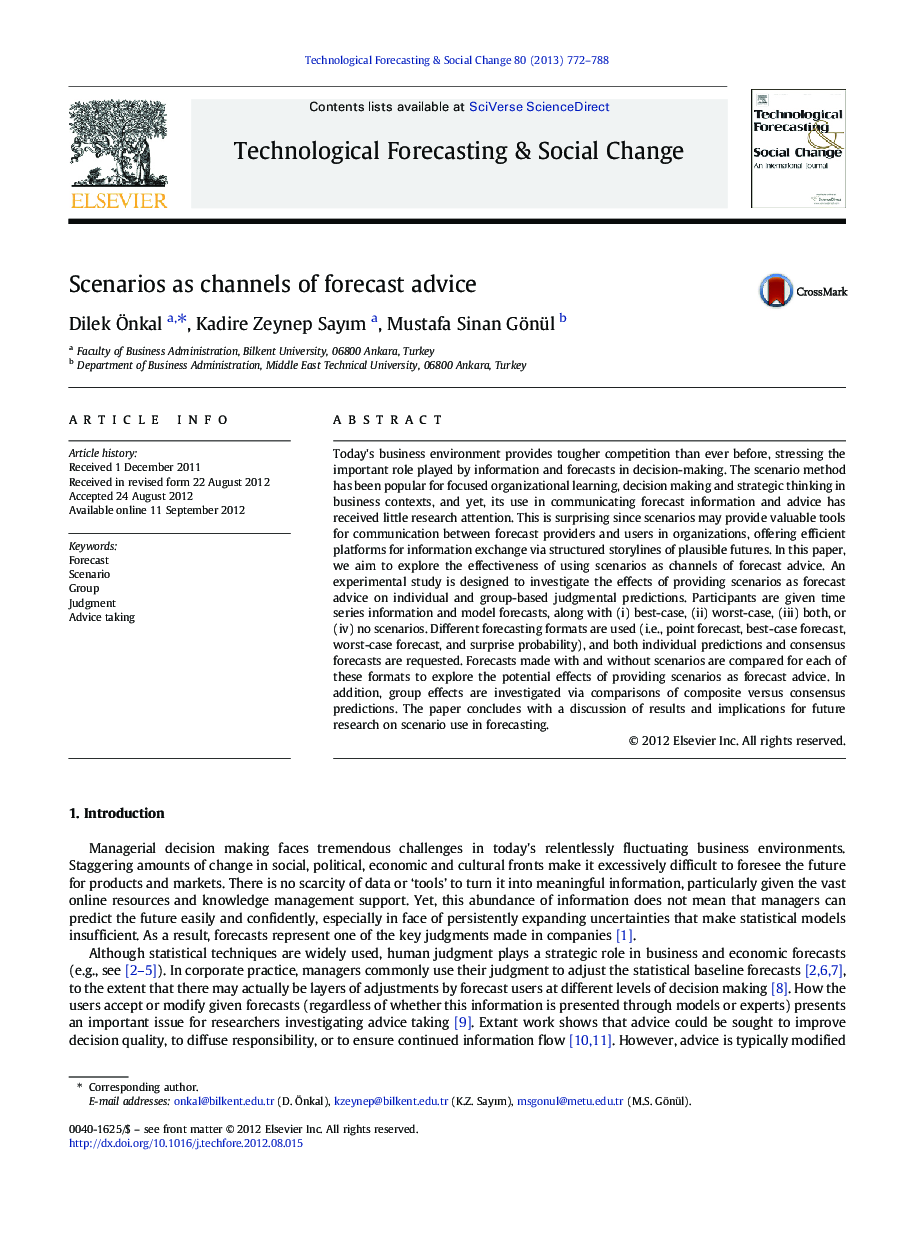| Article ID | Journal | Published Year | Pages | File Type |
|---|---|---|---|---|
| 896727 | Technological Forecasting and Social Change | 2013 | 17 Pages |
Today's business environment provides tougher competition than ever before, stressing the important role played by information and forecasts in decision-making. The scenario method has been popular for focused organizational learning, decision making and strategic thinking in business contexts, and yet, its use in communicating forecast information and advice has received little research attention. This is surprising since scenarios may provide valuable tools for communication between forecast providers and users in organizations, offering efficient platforms for information exchange via structured storylines of plausible futures. In this paper, we aim to explore the effectiveness of using scenarios as channels of forecast advice. An experimental study is designed to investigate the effects of providing scenarios as forecast advice on individual and group-based judgmental predictions. Participants are given time series information and model forecasts, along with (i) best-case, (ii) worst-case, (iii) both, or (iv) no scenarios. Different forecasting formats are used (i.e., point forecast, best-case forecast, worst-case forecast, and surprise probability), and both individual predictions and consensus forecasts are requested. Forecasts made with and without scenarios are compared for each of these formats to explore the potential effects of providing scenarios as forecast advice. In addition, group effects are investigated via comparisons of composite versus consensus predictions. The paper concludes with a discussion of results and implications for future research on scenario use in forecasting.
► An experiment is designed to examine effects of incorporating scenarios into forecast advice ► Individual and consensus forecasts are compared ► Scenarios are found to be informative and useful in making forecasts ► Presence of scenarios increases both acceptance of forecast advice and confidence in predictions
